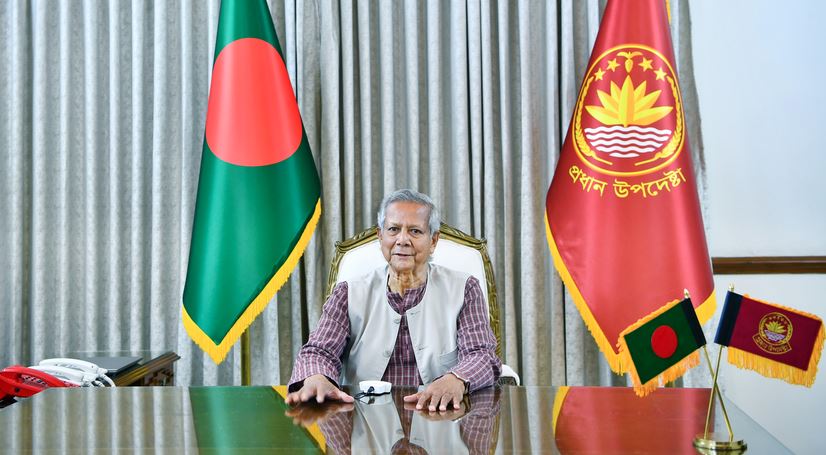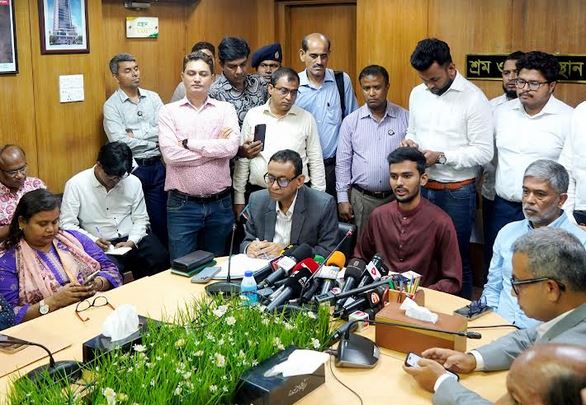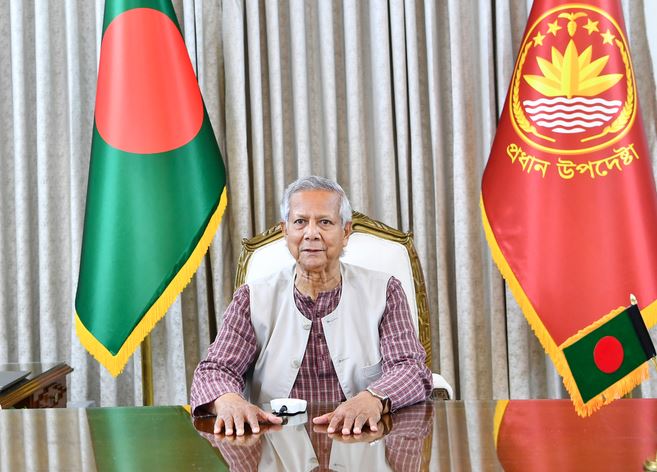BSS, DHAKA: Chief Adviser Professor Muhammad Yunus today urged the people to cooperate with the interim government to accomplish reforms, announcing formation of six commissions to carry out the job.
“We want reforms. It is our sincere request – please don’t go to the spectators’ gallery after bestowing the key responsibility of reform on us. Stay with us. We will do the reform together. It is the responsibility for all,” he said in a televised address to the nation this evening.
Bangladesh Television (BTV) aired his 33-minute address.
Dr Yunus called upon all to bring reform to their own world too, saying bringing reform to a nation does not mean only reform of the government.
“Bring reform in your business if you are a businessman. Business groups should bring reforms through their respective associations. Bring reforms in associations. Rewrite the constitution of the associations. If you are a worker, you should bring reform in your work,” he said.
“If you are a political leader or activist, bring reform in your field. Bring reform in your organisation if you are the head of the organisation.
I urge everyone to take this as an opportunity. Through this reform, we want to start a new journey as a nation. We all expect that this journey would establish us as a respectable nation in the world,” the chief adviser said.
Dr Yunus, who took the helm of the interim government following the fall of an autocratic regime in a student-people uprising, said the fascist government in Bangladesh has fallen in the face of the historic July uprising of students, workers and masses and the sacrifice of thousands of people.
“We have got an unprecedented time and opportunity to implement the message and aspirations of this mass-upsurge,” he said.
It has become necessary to complete some national reforms in order to implement the aspirations and prevent the recurrence of fascism or autocratic rule in Bangladesh and introduce a state system based on people’s ownership, welfare-oriented and dedicated to public interest, he said.
The Chief Adviser said one of the central points of the reform plans is to establish a fair election system and good governance.
“As we believe in people’s voting rights and people’s ownership, the improvement of the electoral system has been given importance in our reform plans. We think, it is in no way acceptable to impose tyranny and misrule of the majority on the people in the name of elections or to keep all the power monopolized to one person or family or any group,” he said.
Dr Yunus said the government is thinking of reforming the Election Commission (EC) and other institutions related to elections to eliminate these fears.
“In addition, we feel the need for constitutional reforms to ensure the representation and interests of people from all walks of life and to reflect the message of the July mass uprising,” he said.
Reform of four institutions – police administration, public administration, judicial administration, anti-corruption commission- which are related to the electoral system is essential for fair and free elections, he said.
As an initial step to reform these issues, the government has initially decided to form six commissions, he said.
The Chief Adviser said six eminent citizens have been appointed to head these commissions. Dr Badiul Alam Majumdar will act as the head of electoral system reform commission while Sarfaraz Chowdhury as head of police administration reform commission, Justice Shah Abu Naeem Mominur Rahman as head of judiciary reform commission, Dr. Iftekharuzzaman as head of the anti-corruption reform commission, Abdul Muyeed Chowdhury as head of public administration reform commission and Dr Shahdeen Malik as head of constitution reform commission.
After this, the government will continue the process of formation of commissions on various other issues, he added.
He expressed his belief that the reform of these institutions will also contribute to establishing a public ownership-based, accountable and welfare-oriented state system.

The names of the other members of these commissions will be fixed through holding discussions with the heads of the commissions, he said.
Dr Yunus said advisory council members, representatives of the movement of students, workers and masses and representatives of civil society and political parties will be present in the discussions and consultation meetings of the commissions.
Once fully constituted, he hoped, the commissions can begin works from October 1 and the works will be completed within the next three months.
The Chief Adviser said based on the commission’s report, the government will hold consultations with major political parties at the next stage.
At the final stage, the outline of reform plans will be finalized on the basis of a three-to-seven-day long consultation meeting with students’ community, civil society, representatives of political parties and the government.
It will also give an idea of how this outline will be implemented, he said.
He said the government believes that this event will make the whole nation strong and optimistic in the unity of implementation of the message of the July mass-uprising and aspirations of rebuilding the state.







